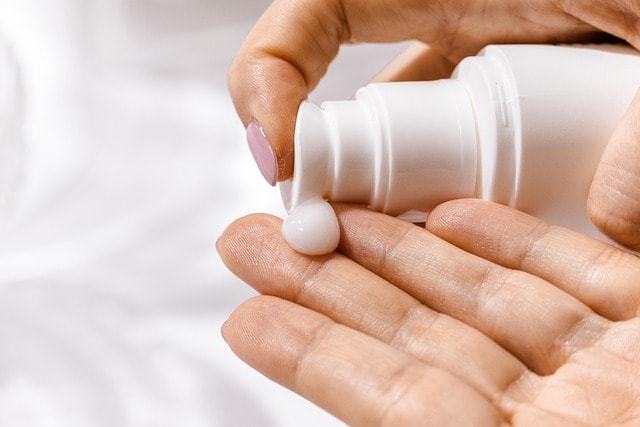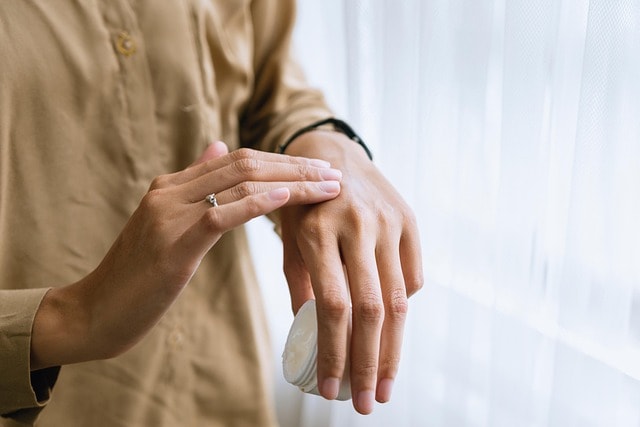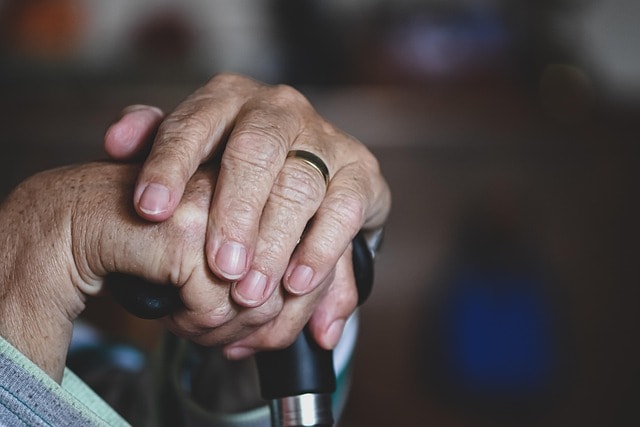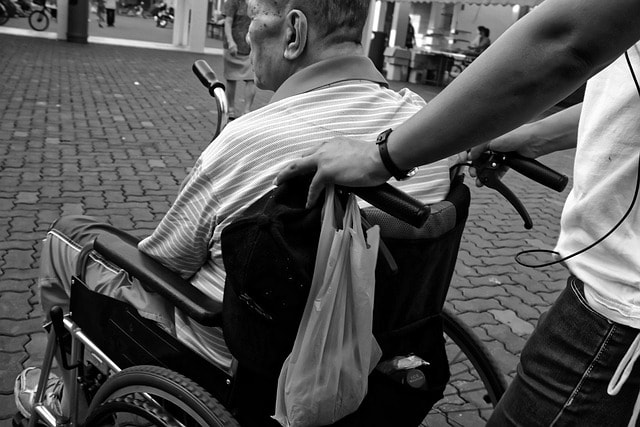Overview
Reviewed by David A. Neiman, Esq.
Contact Attorney: David A. Neiman
Injury: Economic losses suffered through using products contaminated with B. cepacia bacteria
Defendant: DermaRite Industries, LLC.
Practice: Mass Tort
Latest Update: August 27, 2025 — Recall expanded to include more OTC products.
DermaRite’s recall has been expanded to include more over-the-counter (OTC) products, including hand sanitizers and deodorants.
Case Team
Principal Attorney: David A. Neiman
Principal Paralegal: Monica Raatz
Supporting Paralegal: Gabriela Lopez
Legal Assistant: Yolanda Mickles
Understanding the DermaRite Lawsuit: Contamination Risks from Burkholderia cepacia
DermaRite, a provider of hygiene and health supplies including DermaSarra, KleenFoam, and PeriGiene, has announced a recall as a result of a serious contamination of its products by the Burkholderia cepacia bacteria. People who may have been exposed to the contaminated soaps and other products are filing lawsuits holding manufacturer DermaRite responsible for the economic losses they suffered through using their dangerous products.

Image by Pixabay.
Injury
What is the DermaRite Industries contamination lawsuit?
Hygiene and health supplier DermaRite has issued a nationwide recall of its products over contamination with Burkholderia cepacia. This group of bacteria can cause life-threatening infections, especially in people with immune system issues and the healthcare workers taking care of them.
Plaintiffs are filing lawsuits claiming that DermaRite was negligent in its manufacturing, labeling, and marketing of these products. Consumers trusted that the company’s products would be safe, and would not have used those products had they known about the serious risks to their health.

Image by Pixabay.
Recall of DermaRite products
After identifying OTC antiseptic, cleanser, and antimicrobial products that may have been contaminated in July of 2025, DermaRite issues its first voluntary recall on August 8, 2025.
The initial DermaRite recall included:
- DermaKleen, an OTC antiseptic lotion soap with Vitamin E.
- DermaSarra, an OTC external analgesic (pain reliever) for minor skin irritations caused by dry skin, insect bites, or sunburn.
- KleenFoam, an OTC antimicrobial foam soap with aloe vera.
- PeriGiene, an OTC antiseptic cleanser for the perineal area.

Image by Pixabay.
DermaRite expanded their recall on August 27, 2025 to include:
- 3-N-1, a cleansing foam wash with aloe vera.
- 4-N-1, a no-rinse wash cream.
- Clean-N-Free, a mild cleanser.
- DermaCerin, a moisturizing cream.
- DermaDaily, a daily lotion.
- DermaFungal, an OTC antifungal cream for athlete’s foot, jock itch, and ringworm.
- DermaKlenz, a wound cleanser.
- DermaMed, an OTC skin protectant for poison ivy, oak, and sumac.
- DermaRain, an extra-mild body wash and shampoo.
- DermaSyn, a hydrogel wound dressing.
- DermaVantage, a body lotion.
- DermaVera, a full-body cleanser with shea butter.
- Gel Rite, an OTC gel hand sanitizer.
- Hand E Foam, an OTC foaming hand sanitizer.
- Lantiseptic, an OTC skin protectant for cuts, scrapes, and burns.
- LubriSilk, a lotion for dry skin.
- PeriFresh, a mild cleanser spray for use in incontinence care.
- PeriGuard, an OTC skin protectant for rashes and irritation due to incontinence.
- Renew Dimethicone, an OTC skin protectant for diaper rash.
- Renew Hair and Body Wash, a full-body wash.
- Renew Full Body Wash & Shampoo, a mild bodywash and shampoo.
- Renew Periprotect, an OTC skin protectant for diaper rash.
- Renew Skin Repair, an OTC skin cream.
- San-E-Foam, a foaming hand sanitizer with vitamin E.
- TotalBath, a bodywash and shampoo with vitamin E.
- TotalFoam, a mild bodywash and shampoo.
- UltraSure, an OTC anti-perspirant and deodorant.
- WhirlBath, a bodywash and shampoo for use in whirlpools and tubs.
The recall announcement was further updated in September 2025 to clarify that it does not apply to any wound care or nutritional products.
Plaintiff & Defendant
Who is DermaRite Industries, LLC?
Founded in 1995 in New Jersey, DermaRite is a large health and hygiene corporation that makes skin care, wound care, nutritional, and infection control products. The company manufactures, markets, advertises, and distributes its products throughout the U.S. and Puerto Rico.
In addition to selling its products for home use, DermaRite is also a significant supplier of patient care products for nursing homes, hospitals, and clinics. These populations are particularly vulnerable to contaminants and rely on companies like DermaRite to provide reliable healthcare products.
Landscape
Understanding Burkholderia cepacia complex
Burkholderia cepacia complex, also referred to as B. cepacia and Bcc, is a group of 24 closely related bacteria species usually found in soil and water. The bacteria can cause life-threatening infections in healthcare settings when individuals are exposed through contaminated medical products, contaminated surfaces, or person-to-person contact.
B. cepacia can enter the body via direct contact with broken skin, inhalation of aerosols, contact with mucous membranes, or cross-contamination. The bacteria is resistant to antibiotics and poses serious health risks, especially to immunocompromised individuals.

Image by Pixabay.
Symptoms of a B. cepacia infection vary widely. While some people have no symptoms, others develop serious conditions including:
- Bloodstream infections
- Sepsis, a dangerous condition where the body’s immune system turns against itself
- Septic shock
- Pneumonia
- Respiratory infections, especially in people with cystic fibrosis or other chronic lung diseases
- Organ failure
In some cases, an untreated infection can be deadly.
Who is most at risk from Burkholderia cepacia infections?
The bacteria in B. cepacia usually pose minimal risk to healthy individuals, and some people have no symptoms at all. However, individuals with weakened immune systems are at a much higher risk of developing life-threatening sepsis and other conditions.

Image by Pixabay.
Those at high risk of infection from recalled products include:
- Immunocompromised patients, including people undergoing cancer treatment, organ transplant recipients, and people with chronic illnesses.
- Patients at healthcare facilities, hospitals, extended care facilities, and nursing homes that used contaminated DermaRite products.
- People receiving medical care at home.
- Physicians or healthcare providers who may have been exposed to B. cepacia on the job.
Because DermaRite soaps, cleansers, lotions, and other products are used extensively in healthcare facilities, this contamination poses a serious risk to immunocompromised patients and those taking care of them. Even healthy individuals can develop minor skin lesions and local infections if the bacteria enters the body through damaged skin or wounds.
Timeline
August 27, 2025 — Recall expanded to include more OTC products.
DermaRite’s recall has been expanded to include more over-the-counter (OTC) products, including hand sanitizers and deodorants.
August 8, 2025 — DermaRite announces voluntary nationwide recall.
DermaRite announces a voluntary nationwide recall of several products contaminated with Burkholderia cepacia complex, including OTC antiseptic, cleansing, and skincare supplies.
July 2025 — DermaRite identifies bacterial contamination in some of its products.
DermaRite identifies that some of its antiseptic and cleansing products may have been contaminated with dangerous bacteria.
May 1995 — DermaRite founded.
DermaRite Industries, LLC. is founded in New Jersey.
Contact
Contact the Wallace Miller law firm about B. cepacia exposure
Consumers should be able to rely on healthcare manufacturers to provide safe, effective supplies—especially when those supplies are used in hospitals, nursing homes, and other healthcare facilities. The contaminated products sold by DermaRite pose a serious risk to patients and healthcare workers across the U.S.
You may be able to participate in a lawsuit against DermaRite Industries if you recently bought products on the recall list. If you think you may have used contaminated products, reach out to our team of consumer protection attorneys at 331-425-8022 or via our online case evaluation. We will help you investigate the potential exposure and fight for the compensation you deserve.

Wallace Miller partner David A. Neiman.

